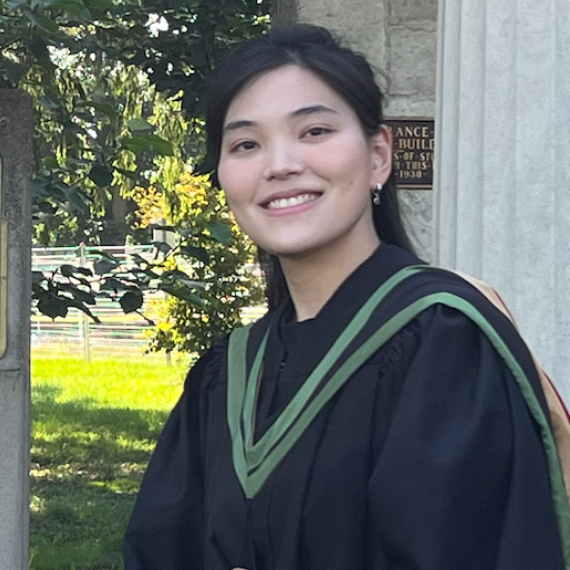
For Master of Applied Nutrition student Yang Tzu-Yi, the decision of whether to pursue her master's was a tough one. After completing the last year of her undergrad in Applied Human Nutrition online while living in China during the pandemic, Tzu-Yi got a job in China as a teacher. She debated whether it made sense to walk away from a stable job and take on the high cost of paying for continued education and moving back to Canada.
Ultimately, the desire to continue pursuing her studies won out, and the financial stress of paying for more education was alleviated through receiving the Class of MAC‘59 Scholarship.
“One of the main reasons I wanted to come back to U of G was the professors. All my professors in my undergrad were very understanding and supportive, even when I was finishing my degree in China and faced challenges due to the time difference. I wanted to re-enter that environment where I felt supported, and I’m very honoured and grateful to be able to do so with the help of the MAC’59 Scholarship,” said Tzu-Yi.
In her Master of Applied Nutrition program, Tzu-Yi has enjoyed getting hands-on experience through placements that challenge her to grow. One placement was with Hope House in downtown Guelph, working with a dietician on food security projects.
“This was my first time working with people who are facing challenges like homelessness and mental illness. It was an eye-opening experience and gave me an appreciation for the complexity of factors that cause someone to face poverty,” said Tzu-Yi.
Ultimately, Tzu-Yi hopes to stay in Canada and join a family health team because she’s interested in working with a wide variety of people, from children to young adults to seniors. One issue that family health teams assist with has particularly caught her interest.
“In China, where I’m from, eating disorders and disordered eating is a huge problem, particularly on social media, but I didn’t expect it to be such a big problem in Canada with the rise of the body positivity movement,” said Tzu-Yi. “It’s clearly an issue that people are struggling with. I’m very interested in working with individuals that struggle with disordered eating to live their best health through skills, knowledge, empathy, and healing.”
For future Master of Applied Nutrition Students, Tzu-Yi has some advice about seeking out scholarships. “Having a scholarship really helped relieve some of my stress,” said Tzu-Yi. “In the Master of Applied Nutrition Program, it’s recommended that you don’t have a part time job while doing the program because it’s so short and condensed, so having a scholarship will allow you to really focus on your studies.”
Interested in supporting students like Tzu-Yi? Contact Cristina Coates at ccoate02@uoguelph.ca [1] to learn about available opportunities.